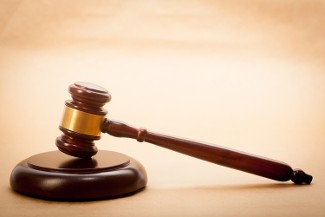|
730 Evaluations (730 Eval)
What is a 730 evaluation
A 730 evaluation is an in-depth analysis of a disputed and complex legal issue, which is conducted by an unbiased expert in the field related to the legal dispute.
After the 730 evaluation is complete, the expert, or 730 evaluator, will render his or her opinion on the disputed legal issue to the judge in a written recommendation, so as to assist the judge in making proper findings and orders related to that legal dispute.
For example, in a child custody dispute, a psychologist (730 evaluator) may be appointed to analyze a person’s mental status as it relates to that person’s ability to take care of a child. The psychologist will prepare a recommendation for the presiding judge so that the judge may better understand the person's mental status as it relates to his or her ability to take legal custoday and/or physical custody of a child.
Note: The court is not required to adopt the recommendations of the 730 evaluator, but in child custody cases, the court is required to make orders that are in the best interest of the child.
The Law of Evidence Code 730
When it appears to the court, at any time before or during the trial of an action, that expert evidence is, or may be required by the court, or by any party to the action, the court on its own motion, or on motion of any party, may appoint one or more experts to investigate, render a report as may be ordered by the court, and/or to testify as an expert at the trial of the action relative to the fact or matter as to which the expert evidence is or may be required [CEC 730].
The court usually appoints a 730 evaluator from a court-approved list of 730 evaluators; however, if the parties can agree (stipulate), the court may allow a person, who otherwise qualifies as an expert in the field related to the legal issue, to serve as the 730 evaluator, even though that expert is not on the court's court-approved list.
For example, the judge may appoint a Certified Public Accountant (CPA) in a divorce case where the parties dispute their respective community property interest in a family business. The judge may appoint the CPA from a preapproved list of CPAs, or the parties may select a CPA that is not on the court’s list, so long as both parties agree (stipulate) to use that CPA and the court dos not otherwise object.
With few exceptions, the 730 evaluator (expert) must be licensed in his or her field of expertise, such as a licensed physician, CPA, psychologist, psychiatrist, marriage counselor, social worker, etc.
730 evaluations are common in complex child custody disputes or support type cases. This includes any of the following types legal cases: child custody, child visitation (parenting time), spousal supports, child support, paternity suits, grandparents’ rights, guardianships, and restraining orders.
In child custody cases, the court may appoint a 730 evaluator to analyze questionable parenting practices, dangerous living environments, drug or alcohol abuse, physical or emotional child abuse, child neglect, child move away requests, the impact of a long absence between a child and a parent, or other concerns of the court, so as to assist the court in making child custody orders that are in the child's best interest.
In support cases (child, spousal, or family support), the court may appoint a 730 evaluator to analyze a party’s assets and/or actual income as it relates to a person’s ability to pay child and/or spousal support (alimony).
The 730 evaluator in support cases will investigate and assess a party’s self-employed business value, personal value, cash flow, community property interests (tracing issues), hidden assets, and/or asset appraisal.
730 evaluation process in child custody cases
In child custody and/or child visitation cases the 730 evaluator may analyze the following: a child’s relationship with his or her parents, siblings, friends, babysitter, teachers, or other family members, the child’s social structure and living arrangements (i.e. religion, culture, activities, discipline, etc.), legal documents (police reports, medical reports, school records, prior psychological evaluations, restraining orders, and/or mediation reports), and the particular needs of the child in light of his or her age, education, and maturity.
Note: The 730 evaluator in a child custody case is usually a psychologist or licensed therapist. Psychologist and licensed therapist are mandated reporters of suspected child abuse and/or child neglect. Also, the 730 evaluator is not a mediator for the parents. The 730 evaluator’s job is to analyze the family dynamics and social environment in order to make a recommendation for child custody and/or child visitation arrangements that best meet the interest of the child (not the parties or parents).
The 730 evaluator will maintain confidentiality as best as possible under the circumstances and he or she will not discuss findings or recommendations with the parties before the recommendation is filed with the court.
Who pays for the 730 evaluation
The court order may order a party to pay either the entire cost, or a portion of the cost, of the 730 evaluation. Sometimes, the court will order that a party pay the entire cost of a 730 evaluation, subject to full or partial reimbursement at a later time by the opposing party. The ability to pay the cost of the 730 evaluation and other equitable factors are important in the judge’s decision as to which party should incur those cost.
Challenging a 730 Evaluator’s Recommendation:
A 730 evaluator’s recommendation may be challenged for several reasons, including: 1) bias or prejudice of the 730 evaluator, 2) failure of the 730 evaluator to consider relevant evidence, 3) consideration of improper or illegal evidence in the 730 evaluation, 4) the 730 evaluator misapplied the law to the facts, or 5) the scope of the evaluation was overly broad.
A person may hire a second 730 evaluator in hopes of producing a different recommendation based on the same facts, or to challenge the propriety of the first 730 evaluator’s findings based on the above listed factors, or both.
For more information on 730 evaluations, contact our divorce and family law attorneys today for a free consultation. Call today!
909-725-8199
|
Divorce & Family Law Lawyers
909-725-8199
730 Evaluations (730 Eval)
Free Consults Mon- Sat 7:00 - 7:00 p.m.
Se habla español

909-725-8199
Divorce & Family Law Attorneys

909-725-8199
Divorce & Family Law Law Firm
Riverside County
Eastvale, Moreno Valley, Riverside, Norco, Corona, Banning, Beaumont, Perris
San Bernardino County
Loma Linda, Redlands, Grand Terrace, San Bernardino, Highland, Fontana, Rialto, Colton, Rancho Cucamonga, Ontario, Chino, Upland, Montclair, Hesperia, Victorville
Los Angeles County
Pomona, LaVerne, Claremont, San Dimas, Pasadena, Los Angeles

Divorce & Family Law Lawyers
909-725-8199
730 Evaluations (730 Eval)
Free Consults Mon- Sat 7:00 - 7:00 p.m.
Se habla español
Updated July 17, 2021
|

